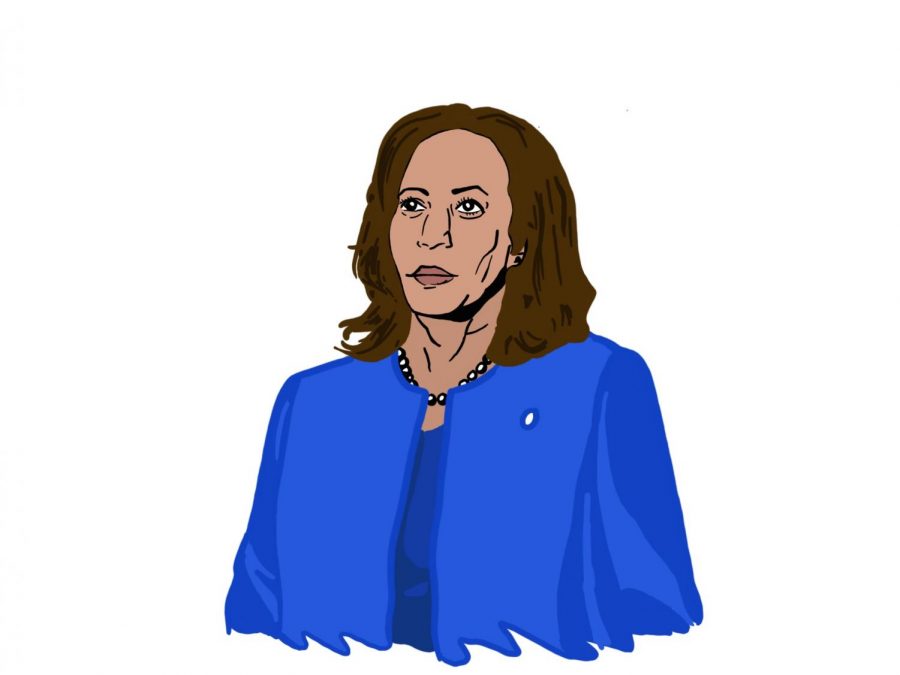The Road For Women in Politics is Difficult; Kamala Harris is Just Getting Started
Vice President-elect Kamala Harris will be the highest-ranking African American woman in U.S. history, and she has the opportunity to pave the way for more female politicians. Staff illustration: Sophie Fang.
January 13, 2021
Joe Biden and Kamala Harris will be sworn in as President and Vice President on Wednesday, Jan. 20. Their inauguration will be historic for two reasons: Biden will be the oldest president in U.S. history, according to AP News, and Harris will be the first female vice president. The world will be watching Biden and Harris as they enter the White House, but they will be watching Harris especially.
Because Harris is the first African American woman to take on the second highest-ranking position of power in the U.S., she will be heavily scrutinized, as she already was after her debate performance in October, and will face both intense sexism and racism compared to her white, male predecessors, according to articles in The New York Times and Vox. Harris has already dealt with numerous sexist and racist attacks. One quarter of the media coverage concerning Harris’s vice presidential nomination included sexist or racist tropes, according to Time’s Up Now, a foundation combatting sexual harassment. 61% of media coverage about Harris mentions her gender and race, in comparison to 5% for white male politicians like Vice President Mike Pence and Sen. Tim Kaine (D-VA).
One particular stereotype that often emerges in the media is the “angry Black woman,” which characterizes Black women as bad-tempered, hostile and overly aggressive. Sexist and racist labels such as these make it difficult for women, especially women of color, to enter a political field already dominated by men.
Women in power also endure many double standards that men in power often do not face. When men are leaders, women are often labeled bossy, according to reports provided by Business Insider. It’s the use of similar yet negatively connotated adjectives that force female politicians to be defined by their gender. They can’t be too tough and not feminine enough or too feminine and not tough enough.
America still has issues with women in leadership; it’s surprisingly difficult for many Americans to picture the business and authoritative aspects of politics as a job fit for women. In a 2018 survey done on Women and Leadership by the Pew Research Center, surveyors perceived women in politics as more compassionate, more empathetic and better role models for young children than men. However, according to the Pew Research Center’s data, men in politics were seen by surveyors as more willing to take risks and negotiate profitable deals. It’s also more difficult for women in politics to come off as “likable,” and it’s more difficult for “unlikable” women to win votes over “unlikable” men, according to research done by the nonpartisan group Barbara Lee Family Foundation.
Women in politics, especially women of color, have to prove that they are qualified more so than male competitors, according to a 2020 Washington Post Article. As shown in the recent 2020 Democratic Presidential primaries, the few female candidates had detailed policy proposals, and impressive senatorial backgrounds. The male candidates were qualified as well, but presidential candidate Amy Klobuchar explained that it might have been difficult for a woman with a similar resume to candidate South Bend, Ind. Mayor Pete Buttigieg to have his same rise to fame and political power.
Although Harris is moving into the vice presidential office with enormous expectations and will be under heavy scrutiny, she has the opportunity to begin a new era for women in power. She can define what it means to be a woman in the White House, empowering women to pursue careers in politics and creating new precedents for governments across the world.



